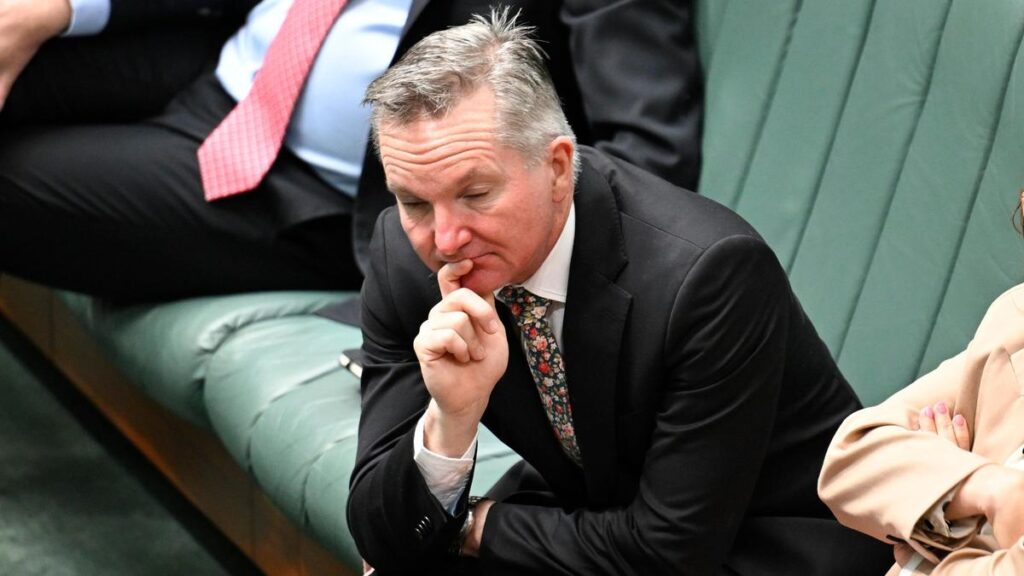
UPDATE: Australia’s Prime Minister Anthony Albanese is facing criticism for appointing beleaguered Energy and Climate Change Minister Chris Bowen to a pivotal role at the United Nations for the next twelve months. This controversial decision comes as Albanese grapples with the fallout from the opposition’s abandonment of a bipartisan net zero by 2050 policy, which many are calling his most significant political misjudgment since the Voice referendum.
Officials confirm that Bowen will chair the upcoming COP 31 climate change conference, despite concerns over his effectiveness in navigating the complex global emissions reduction landscape. Critics argue this move could undermine Australia’s credibility as it struggles with rising electricity prices and a faltering renewables transition program.
Foreign Affairs Minister Penny Wong attempted to downplay the significance of Bowen’s new role, claiming it would enhance Australia’s influence in global climate negotiations. However, skepticism abounds regarding the actual impact of such positions, especially given Bowen’s track record in government.
“The crunch point of negotiations comes at the end,” Albanese stated in Parliament, defending Bowen’s ability to manage both his ministerial duties and the UN role.
Bowen’s appointment is particularly contentious as Australia faces mounting pressure from environmental activists to phase out fossil fuels, a critical issue given the country’s substantial coal and gas exports, which contribute approximately $120 billion annually to the economy. Critics highlight that Bowen’s leadership during COP 31 will likely be scrutinized, especially after past failures at similar conferences, including COP 30 in Brazil.
Recent reports indicate that the last COP presidency produced limited achievements with many nations, including China and India, rejecting binding commitments for fossil fuel phase-outs. As the new COP president, Bowen will be tasked with balancing domestic energy needs against international climate expectations, all while the centerpiece of his plan for achieving net zero by 2050—the Capacity Investment Scheme—faces severe challenges.
Experts warn that the scheme, which aims to boost renewable energy capacity, is struggling to attract necessary investment. According to reports from Renew Economy, only a handful of solar and wind projects are making progress toward construction, raising concerns about Bowen’s ability to meet the ambitious target of 82 percent renewable energy by 2030.
Analysts argue that Bowen’s focus on international duties will detract from urgent domestic needs, potentially leading to further failures in his current role. “At this particular moment, the CIS is looking like a paper tiger,” stated energy analyst David Leitch, emphasizing the need for a clear demand structure to support renewable energy projects.
As Bowen prepares to engage with global leaders at COP 31, the pressure mounts. He must navigate not only the expectations of the international community but also the realities of Australia’s dependence on fossil fuels. With the stakes higher than ever, many are questioning whether Bowen can effectively juggle these competing demands while also addressing the challenges at home.
This developing story highlights the urgent intersection of domestic policy and international climate commitments, with implications that resonate far beyond Australia’s borders. The world will be watching closely as Bowen steps into a role that could define his political legacy and Australia’s climate strategy moving forward.
Stay tuned for more updates as this story unfolds.






